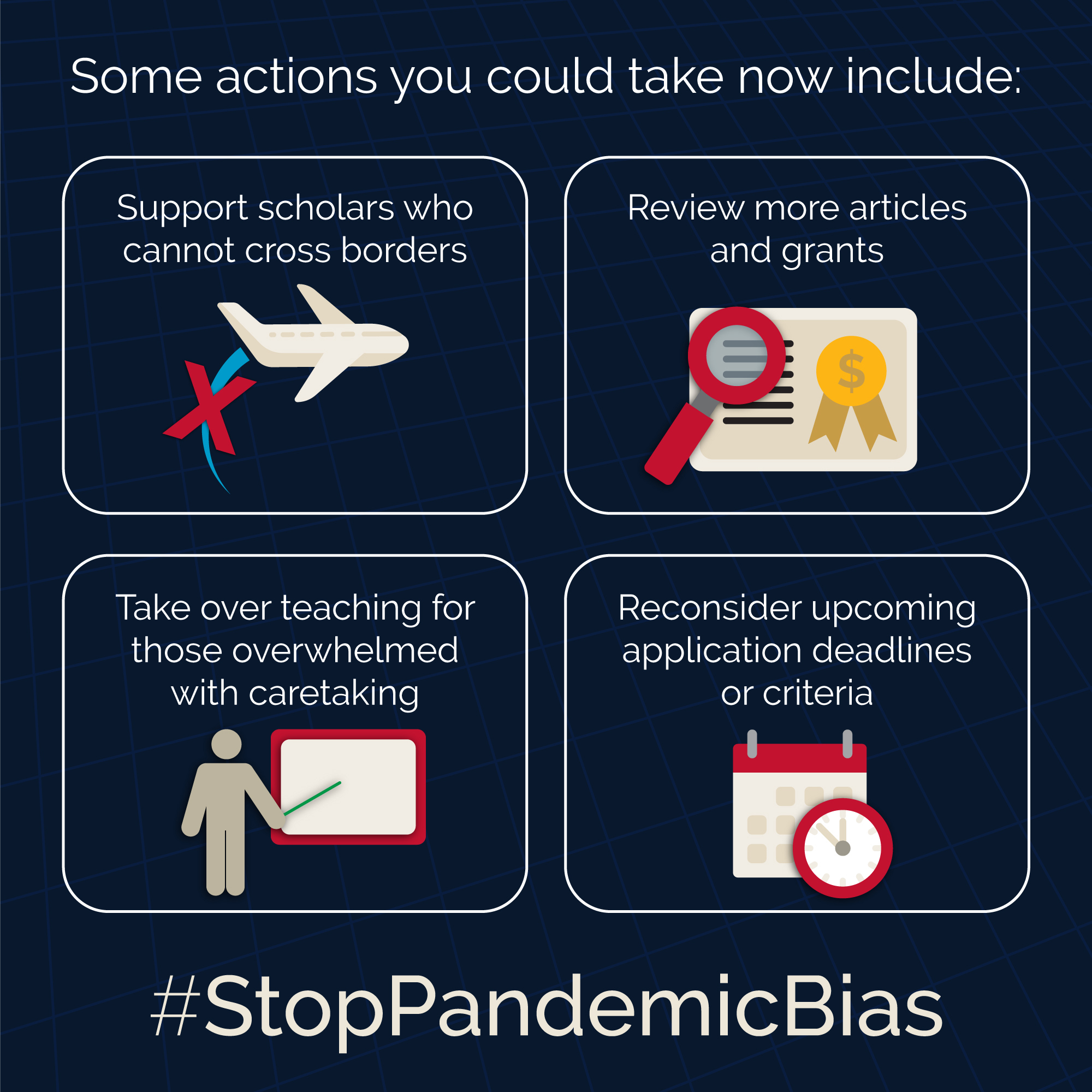Researchers Urge the Scientific Community to #StopPandemicBias
By Jocelyn Duffy
Media Inquiries- Associate Dean for Communications, MCS
While there is little doubt that COVID-19 will have lasting impacts on health and the economy, a group of researchers is bringing attention to the effects the pandemic could have on the careers of scientific researchers. Carnegie Mellon University and Max Planck Institute physicist Ulrike Endesfelder, University of Stuttgart’s Dirk Pflüger and Technische Universität Braunschweig’s Timo de Wolff launched a Twitter campaign #StopPandemicBias, which aims to bring broader understanding to how COVID-19 will impact scientists. Using the hashtag, they hope to crowdsource ideas that will mitigate the impact of the pandemic on research careers.
They also published their concerns in a letter in the July 30 issue of Nature.
“Being unaffected by COVID-19 is a new privilege. The disadvantaged are among both the applicants for positions, grants and publications and their selecting peers, and their voices currently are not heard in our community. Pandemic bias will hinder or even stop the careers of many in our community and prevent access to many trying to enter scientific research,” said Endesfelder. Endesfelder has personally felt these challenges. She was set to move her laboratory to Carnegie Mellon in the spring of 2020 but remains in Germany due to travel restrictions.
Citing the highly collaborative and participatory nature of science, the group believes that researchers who are most greatly impacted by COVID-19 — those who are overwhelmed with care-giving responsibilities, those who are unable to do research outside of the laboratory setting, those who are unable to travel and those who are sick themselves — will be held back from advancing in their careers. For example, a single parent who must home school their children might not have time to submit grants or review articles, or a recent graduate might not be able to travel to interview for a job. These limitations imposed by the pandemic could create barriers that do not exist for those who are not largely affected by the pandemic.
“For the disadvantaged, the obstacles are immense: you cannot compromise on safety when belonging to a risk group; find your next position amidst hiring freezes and budget cuts; pursue international careers when restrictions prevent travel; say no to dependents who need your care; or stay productive when suffering from COVID-19,” said Endesfelder.
“We are concerned that scientists who cannot devote time to grant applications or aren’t able to access their labs to produce the data they need for career-advancing publications or can’t get a visa to report to their new job will face severe setbacks in the advancement of their careers. And if these barriers are too much to surmount, we may lose a significant number of future scientists to other industries. We also are concerned that there will be fewer diverse voices in science. With less people reviewing grants and papers, we will lose diverse opinions that are necessary for moving science forward,” Pflüger said.
The researchers suggest a number of actions the scientific community can take to help prevent this bias. This includes supporting scholars who are unable to travel for opportunities, reviewing more articles and grants and taking over teaching responsibilities for affected colleagues. They also urge institutions and funders to reconsider upcoming deadlines and criteria to create more leniency to those impacted by COVID-19.
“All of us need to contribute, and all of us have something at stake. Now is the time to act. There is no silver bullet, but we all have numerous points of direct influence. We feel that there are opportunities for significant change and we need to start the conversation now,” de Wolff said.
They urge members of the scientific community to join the conversation on Twitter using #StopPandemicBias, where people can submit and discuss ways to help.
